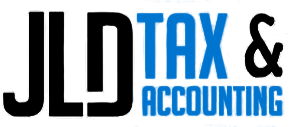Year End Tax Planning: How To Save Money Before The End Of The Year
With 2018 coming to end, there is still time to lower your tax liability. Please see below the following tips. To further discuss your situation, please reach out to JLD Tax & Accounting at http://www.jldtax.com
Section 179 Depreciation –Section 179 of the tax code allows businesses to deduct the full purchase price of qualifying equipment and/or software purchased or financed during the tax year. If you buy a piece of qualifying equipment, you can deduct the FULL PURCHASE PRICE from your gross income (with a limit of $1,000,000). It’s an incentive created by the government to encourage businesses to spend and invest in themselves. To take the deduction for tax year 2018, the equipment must be financed or purchased and put into service by the end of the day on December 31, 2018. Click on the link below for a list of qualifying equipment https://www.section179.org/property_that_qualifies_for_section_179/.
20% Deduction for Qualified Business Income (Section 199A)- Section 199A of the Internal Revenue Code provides taxpayers up to a 20% deduction for qualified business income operated directly or through a pass-through entity (partnership, S corporation, trust or estate). For taxpayers with taxable income that exceeds $315,000 for a married couple filing a joint return, or $157,500 for all other taxpayers, the deduction is subject to limitations such as the type of trade or business, the taxpayer’s taxable income, the amount of W-2 wages paid by the qualified trade or business and the unadjusted basis immediately after acquisition of qualified property held by the trade or business.
Hiring Your Children- If you’re paying your child to work for you and that child is under the age of 18, they may not be subject to Social Security or Medicare taxes. This only applies if the business is a sole proprietorship, or if it is a partnership where each of the parents are the only partners. If your child is under the age of 21 and they work for you, they aren’t subject to the FUTA (Federal Unemployment Tax). Your child is also most likely in a lower tax bracket or not subject to tax at all, so you are reducing your family’s over all taxable income by shifting income to them.

